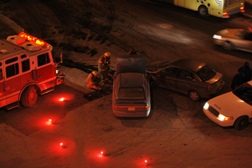 Filing a Personal Injury Claim
Filing a Personal Injury Claim
One of the first steps you can take after being injured by a drunk driver is to file a personal injury claim. If you’ve been in an accident, a personal injury claim can help you get compensation for what you’ve gone through—like medical bills, lost wages, damage to your property, and the pain you’ve endured. In California, the at-fault driver’s insurance company is responsible for covering these costs. However, insurance companies often try to minimize the payout. This is where having a skilled attorney can help. A personal injury lawyer can handle the insurance company for you and help you receive a fair settlement.
Pursuing a Lawsuit for Additional Compensation
In some cases, a personal injury claim may not cover all of your expenses, especially if your injuries are severe. If the drunk driver’s insurance is not enough to compensate you fully, you may need to pursue a lawsuit. Filing a lawsuit can help you pursue more compensation through the courts. In California, you can file a civil lawsuit against the drunk driver to recover damages that go beyond what the insurance covers. This includes compensation for long-term medical care, future lost earnings, and non-economic damages like emotional distress. While a lawsuit can be more complicated than a regular claim, it might help you receive the total compensation you’re owed.
Seeking Punitive Damages
In addition to compensatory damages, California law also allows victims of drunk driving accidents to seek punitive damages. Punitive damages are there to make someone answer for risky actions. They’re meant to prevent others from making the same mistake. It’s about sending a clear message. Unlike compensatory damages above, which are intended to make the victim whole, punitive damages are aimed at penalizing the drunk driver. You must show that the driver acted with severe neglect or intent to harm to receive punitive damages. This usually requires strong evidence, such as a high blood alcohol concentration (BAC) or prior DUI convictions. An experienced attorney can help gather and present this evidence effectively.
Understanding California’s Statute of Limitations
It’s important to be aware of the time limits for taking legal action after a drunk driving accident. In California, the statute of limitations for filing a personal injury claim or lawsuit is generally two years from the date of when the accident occurred. If you fail to file within this period, you may lose your right to seek compensation. However, there are exceptions to this rule. For example, if the victim is a minor or if the injury was not discovered immediately, the time limit may be extended. Contacting a lawyer right away can help you protect your rights and ensure that you meet all important deadlines.
Exploring Victim Compensation Funds
READ MORE CALIFORNIA CAR ACCIDENT LEGAL NEWS
After being injured by a drunk driver in California, you have several legal options to seek justice and compensation. Filing a personal injury claim is often the first step, but it may not be enough if your injuries are severe. In such cases, pursuing a lawsuit for additional compensation or seeking punitive damages can be necessary. Knowing the deadline for filing your claim is crucial so you don't miss out. Additionally, exploring victim compensation funds can offer further financial support. By taking these legal actions, you can better navigate the aftermath of a drunk driving accident and work towards securing the compensation you need to recover. Opting for the right legal strategy can affect how your case turns out.
